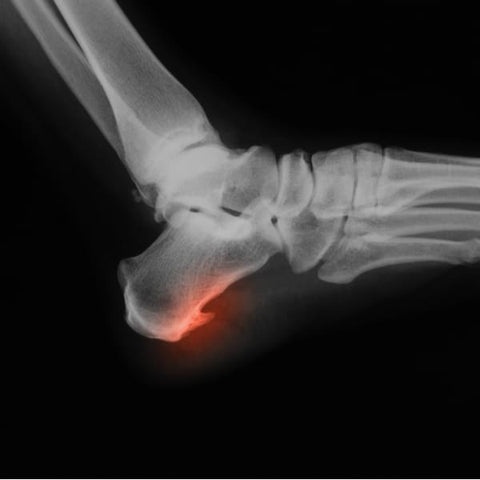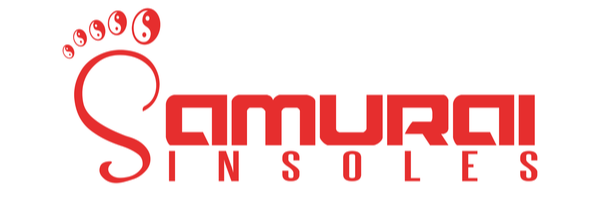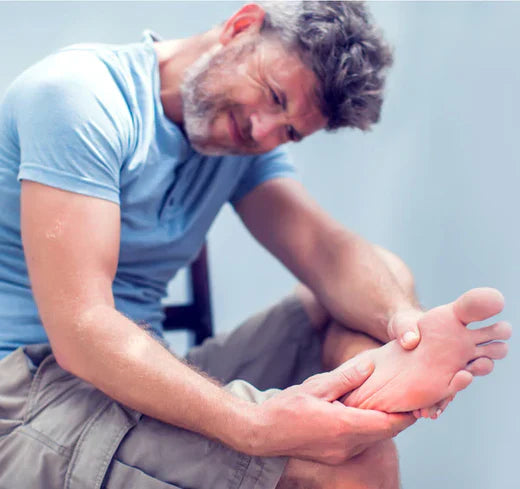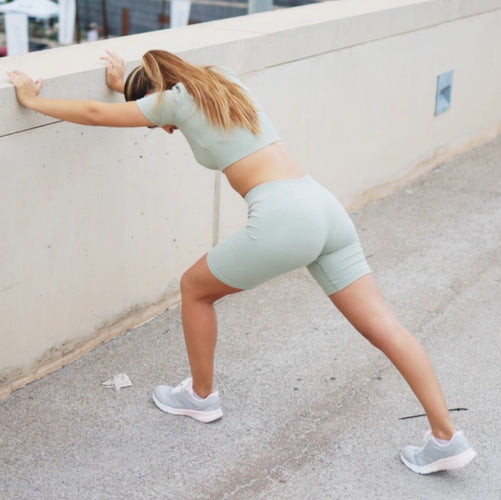
In the United States alone, approximately 2 million Americans suffer from heel spurs each year.
Heel spurs are typically located on the underside of the heel, and occasionally behind it.
While heel spurs are rarely a symptom of a serious health condition, they can escalate to the point where normal activity, especially exercise, can be extremely painful.
Although mild pain in the heel area can commonly disappear on its own, severe pain can become persistent and chronic if ignored.
What are Heel Spurs? (Bone Spurs of the Heels)
Believe it or not, and I can't stress this enough, heel spurs don't actually cause pain! Most heel pain is caused by a condition known as plantar fasciitis. When the plantar fascia becomes chronically inflamed, it can get calcified (hardened) where it is attached to the heel bone. This appears on an x-ray as a heel spur! But rest assured, this spur is likely not causing your pain.
What Causes Heel Spurs?
Heel Pain Symptoms- Why Is Heel Pain In The Morning Worse?
The typical symptoms of heel pain present themselves gradually. In most cases, pain is felt on the bottom of the heel. Discomfort can also extend into the arch.
The pain is most intense when resuming activity after rest and tends to decrease with continued motion. This is due to the fact that the plantar fascia (the ligament that is strained in heel pain) tightens as we sleep. When we first step down again, a shocking tight pain can be felt!
Plantar fasciitis can also worsen at the end of the day after long periods of standing or walking. Swelling, inflammation and stiffness are other symptoms that may be associated with this type of heel pain.
How to Get Rid of Heel Spurs pain?
Because heel spurs are usually not the direct cause of heel pain, there is usually not many good reasons to surgically remove heel spurs. You can achieve relief from heel pain (plantar fasciitis) without ever removing the spurs! If you can figure out what the underlying cause is, you may be able to get rid of your pain.
The American Orthopedic Foot and Ankle Society has recommended the use of over-the-counter inserts and stretching exercises as a starting point for heel pain treatment.
According to one study performed, approximately 95 percent of women who wore over-the-counter shoe inserts and followed a simple stretching regimen experienced significant relief from heel pain in eight weeks. This illustrates what many have experienced in the past, that over-the-counter orthotic shoe inserts can be used as a highly effective first line of therapy for heel pain with positive results.
Home Remedy for Heel and Arch Pain? (How to treat heel spurs)
For something that affects so many people, plantar fasciitis (heel pain) isn't talked about often enough. Generally part of the welcoming wagon of "getting old," plantar fasciitis can be serious enough to make the simple act of walking tough for anyone - regardless of age and fitness.
For many, the answer is plantar fasciitis inserts, sometimes custom-made by a podiatrist. These can cost hundreds of dollars, and can often end up limiting the types of shoes you can wear.
However, nearly all cases of plantar fasciitis (heel pain) can be addressed with a pair of over-the-counter plantar fasciitis inserts.
Not only do they average a tenth of the cost, but they are available in many different shapes and sizes, so you don't have to get rid of what's in your closet.
It's also important to understand cushioning is not the answer! While you would think a cushioned shoe insert is what would be needed for "walking on spur", a more supportive insert that supports the arch is actually what's needed to relieve heel pain!
It sounds a little too good to be true, but once you understand more about what plantar fasciitis is, and what a good insole needs to help, you'll start to see why the solution doesn't have to break the bank.
Top 5 Inserts for Heel Spurs - 2025
🏆 "Our 2025 Top Pick" 🏆
🏆 #1- Samurai Insoles Ninjas
Why are Samurai Insoles Ninjas our top pick for 2025 for Heel Spurs/ Plantar Fasciitis?
✔️ Design: Samurai Insoles Ninjas are one of the few products on the market that are an ACTUAL ORTHOTIC that is not super rigid. This gives your feet the support they need to comfortably relieve plantar fasciitis.
They also can be worn in ANY shoe with a removable insole, giving you the flexibility of using them in many types of shoes! And the best part?
Because they aren't an insole made of foam and fabric, they last SO LONG!
There isn't anything to wear out, just put them under the factory insoles of a new pair of shoes and you're good to go.
✔️ Price: At $39.99 these are an absolute steal! Custom orthotics for plantar fasciitis can easily cost more than $500. For less than 1/10 the price, these are nearly as good.
✔️ One Year Warranty: Samurai Insoles Ninjas have a one year warranty! No other product we reviewed even comes CLOSE to this. Wow!
✔️ Made in the USA: Samurai Insoles are made in an orthotic lab in the USA. The fact that an American made orthotic can be purchased for under $40 still amazes us.


#2- Protalus Insoles M100 Max Series


#3- Superfeet Green Insoles
Superfeet have been around a LONG time. They got their start being sold in retail sporting goods stores, and have transitioned to selling online in recent years, but this has presented the company with some challenges.
✔️ Design: If you've checked out the Protalus design, just know that the Superfeet did it first. They were one of the first to incorporate an orthotic plastic layer on the outside of the insole. Once again, this does the job, but it also makes them thicker than the Samurai, reducing the choices of shoes they'll fit well in.
✔️ Price: Superfeet are borderline in the pricey range, current retail at the time of writing this article is $49.95.
✔️ 60 Day Warranty: Superfeet green insoles come with a 60 day warranty, significantly less than Samurai Insoles Ninjas or Protalus products.



#4- Dr. Scholl's Custom fit Orthotic Inserts
✔️ Design: Not a full length insole, but still designed to be placed on top of your shoes factory insoles, which may make it difficult for some people to adjust to the feel of this. Once again, Dr. Scholl's Custom Fit combine a thick piece of plastic to the bottom of the insole, instead of inside.
❌ Price: Dr. Scholl's Custom fit Orthotic Inserts currently are our second most expensive selection. At the time of this article they are $49.96 retail price.
✔️ 90 Day Warranty: Dr. Scholls Custom Fit Orthotic Inserts have a 90 day warranty.
❌ Made in the USA: Dr. Scholl's "Custom fit" Orthotic Inserts are not made in the USA unfortunately.


#5- Dr. Scholl's Plantar Fasciitis Orthotics
❌ Design: Well, unfortunately, there isn't much of one. Dr. Scholl’s Pain Relief Orthotics for Plantar Fasciitis are a very thin insole with a *very* thin piece of plastic glued to the bottom. It's unclear how much weight they can hold before flattening out, but by the looks of it, not much.
✔️ Price: Well, they are affordable at $31.00!
✔️ 90 Day Warranty: Dr. Scholl’s Plantar Fasciitis Orthotics have a 90 day warranty.
❌ Made in the USA: Dr. Scholl's Pain Relief Orthotic Inserts are not made in the USA unfortunately.
Whichever you choose to fight your heel spur symptoms, choose now!
The longer you allow plantar fasciitis pain to linger, the harder it is to get rid of, and the longer it will take!

We, Samurai Wellness, LLC, are a participant in the Amazon Services LLC Associates Program, an affiliate advertising program designed to provide a means for us to earn fees by linking to Amazon.com and affiliated sites. Samurai Insoles are branded products made by our company, Samurai Wellness, LLC, but we truly believe that our products are the best on the market! It is important to know that our products are not intended to diagnose, treat, cure, or prevent any disease.





